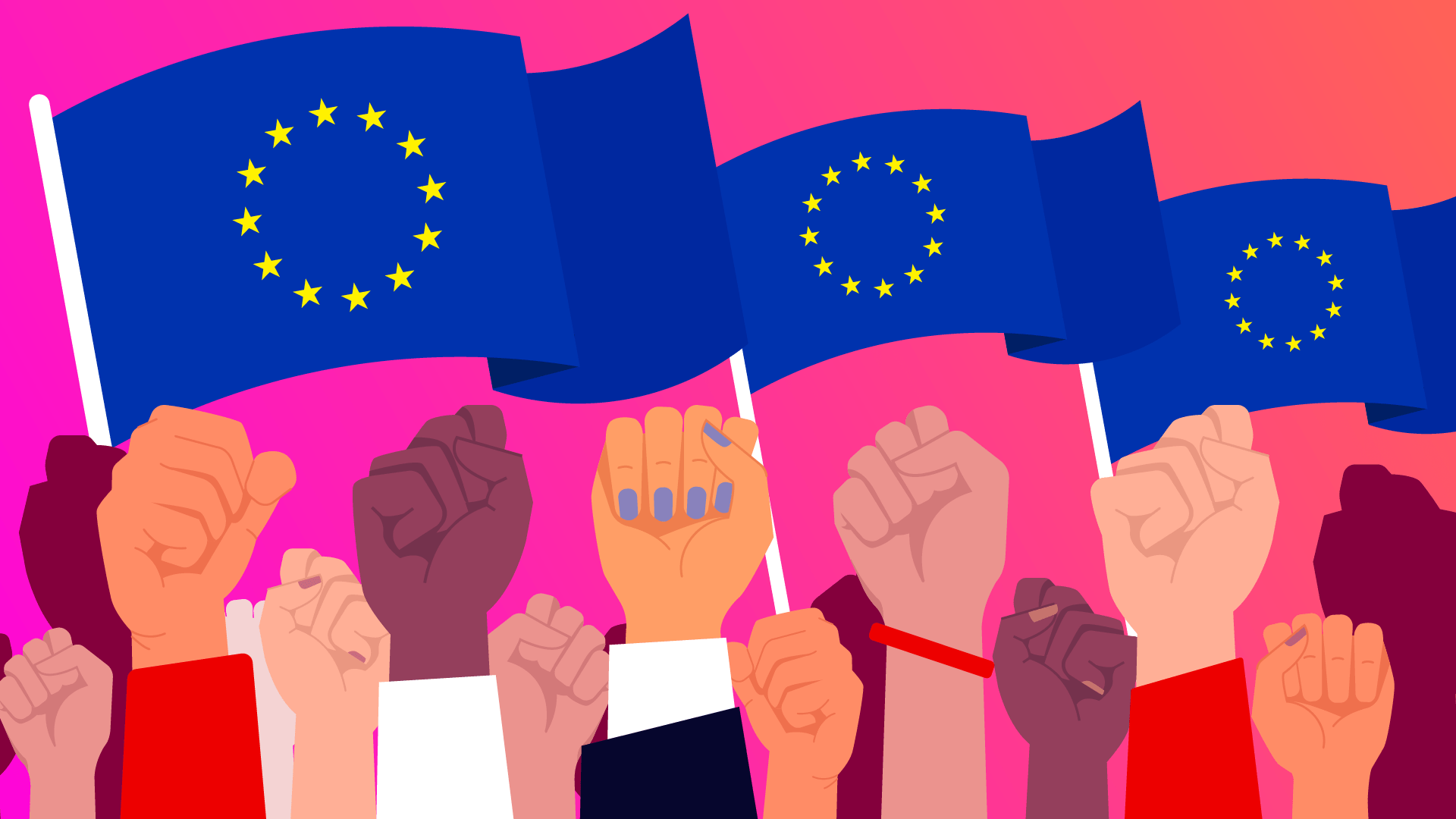
The S&D Group has led the progressive efforts in the Parliament to apply pressure where it hurts: freezing EU funds. We pushed to make the Rule of Law Conditionality Regulation a reality. In force since 1 January 2021, it gives the EU the power to suspend EU funds where the EU budget is at risk from violations of the rule of law. Similarly, the European Rule of Law Mechanism has shed more light on the state of democracy and the rule of law across member states because of the annual reports on rule of law that started in 2020.
EU membership comes with rights and obligations. Article 7 of the EU Treaties exists to make sure that a breach of a member state’s obligations can lead to the suspension of their rights. Since triggering the first stage of the Article 7 procedure against Poland and Hungary in 2017 and in 2018, the S&D Group has kept up the political pressure both towards the governments concerned, but also on the European Commission and the Council.
Thanks to the efforts of the S&D Group, the EU has finally ratified the Istanbul Convention. The Convention is a legally binding international human rights treaty that sets standards for fighting, preventing and prosecuting sexual and gender-based violence against women. Our persistent calls for an EU law to combat violence against women were finally answered in 2022 when the Commission put forward the first piece of legislation to tackle sexual and gender-based violence at EU level.
Through the work of the special committee on foreign interference, chaired by the S&D Group, we found political consensus on a blueprint on how to strengthen resilience and defend our democracies in the face of foreign interference.
With campaigning taking place more and more online, we have made sure that foreign actors will be banned from sponsoring political ads in the run up to elections as part of new rules on targeted political advertising.
For the S&D Group, respect for the rule of law, democracy, human rights, fundamental freedoms and the values and principles enshrined in the EU treaties and international human rights instruments is paramount. EU membership is voluntary and it comes with many benefits, but all member states have an obligation to respect and adhere to European values, no ifs, no buts.
The S&D Group is extremely alarmed by the situation we are witnessing in some member states, where the rule of law is deteriorating dramatically and we have consistently called out any attacks on democracy and the rule of law wherever they take place. We cannot risk the future of the EU due to the derailed political attitudes of a few illiberal political regimes. The rule of law crisis undermines both the EU’s internal cohesion and its credibility.
We know the problem: attacks on the rule of law and democratic backsliding. We have tools to fix the problem: withholding EU funds or suspending voting rights in the Council, for example. However, there is a lack of political will from member states and EU institutions to act.
The S&D Group is working to make sure that we include all violations of the rule of law in the current conditionality mechanism and we keep raising our concerns that the Article 7.1 procedure, that would suspend the rights of member states, is blocked in Council. Serious violations of the rule of law affecting the EU budget and attacking citizens’ freedoms and rights have to be investigated and brought to an end.
Fundamental rights are at the heart of open, democratic societies and as a political group, we work tirelessly to promote and protect these rights. For example, fighting for racial justice, non-discrimination and anti-racism is a core fight for the S&Ds. We drafted the very first report in the European Parliament that addresses structural racism in the EU.
Protecting our children, families and rainbow families also lies at the core of our values. That is why we have fully supported the work on a legislative proposal for the cross-border recognition of parenthood.
Securing the fundamental rights of women is hugely important for us. The S&D Group has consistently fought for the ratification and implementation of the Istanbul Convention by the EU, as well as for the Gender-Based Violence Directive, where our Group is in the lead. We are pushing for a comprehensive approach to sexual and gender-based violence by addressing both prevention and prosecution of this unacceptable crime.
In the European Media Freedom Act, we have worked hard to protect media pluralism and the independence of the media by making sure there is no interference in editorial decisions, no surveillance of journalists and editorial teams and no political interference in public service media.
Every year, there are local, regional and national elections right across the EU. This year, 2024, there are also European elections. Fighting interference is an ongoing priority for the S&D Group.
We urgently need joint action in the EU to make sure campaign financing is more transparent. This is the best way to stop dark funding from third country sources, notably from Russia in support of right-wing parties and movements.
Election campaigns increasingly take place online. That is why we as a group have been pushing to do more to protect the integrity of the elections in the digital age to stop malign interests using new ways of manipulating election results.
Interference in one member state undermines the EU as a whole. National authorities can no longer fight back against these threats by working in isolation, nor can the private sector regulate itself.
As well as working together at the national level, we urgently need new rules to improve the resilience of European political parties and foundations and to improve their capacity to act against foreign interference.
Respecting fair democratic processes is crucial and we need solid rules on transparency, limits on spending, respect for silence periods, equal treatment of candidates, banning of profiling for electoral purposes, labelling of content shared by bots and the removal of fake accounts.
Member states should urgently reform and co-ordinate their national electoral laws by adapting them to the new digital reality, in order to close the gaps between countries and enhance transparency and accountability.

